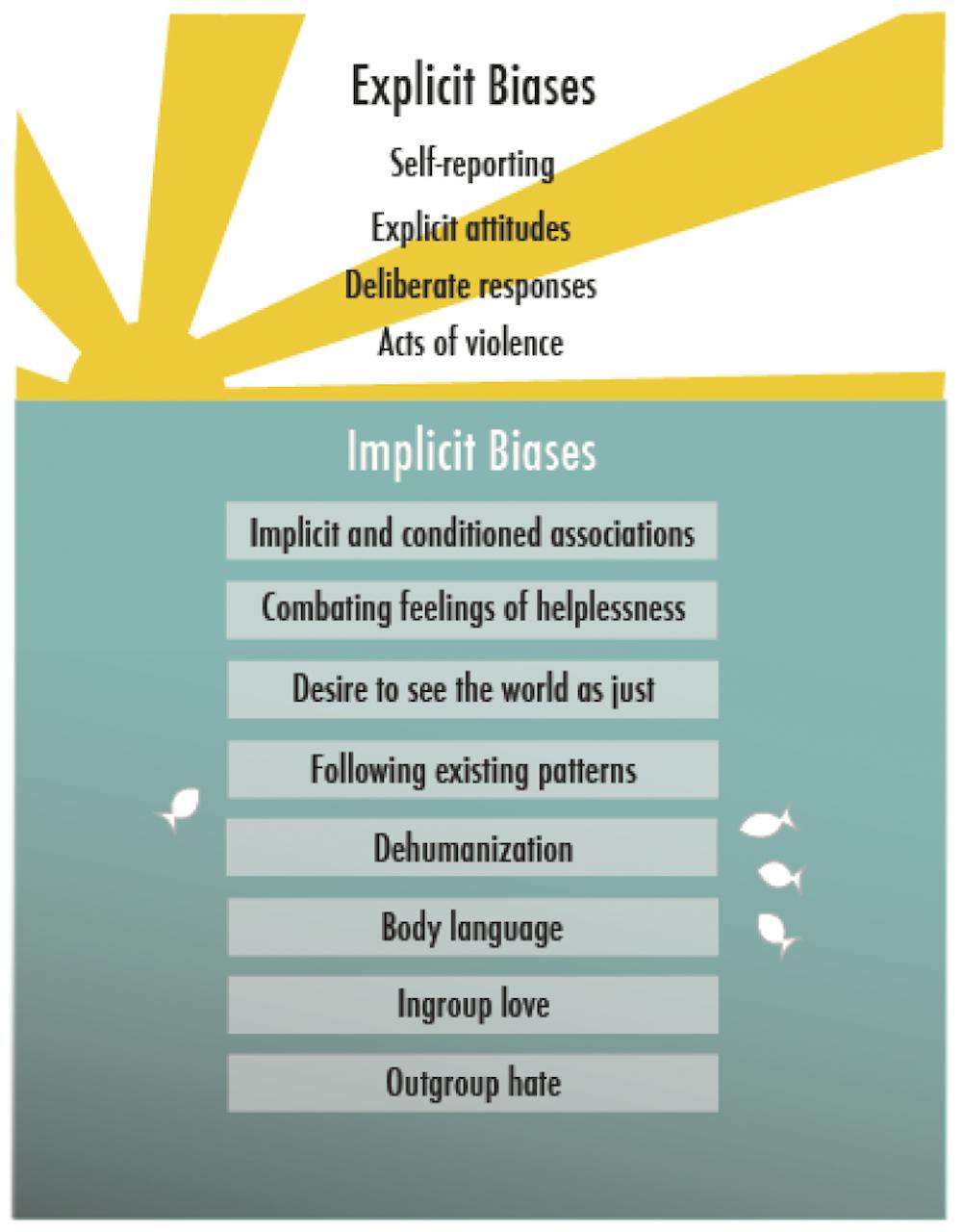Implicit biases and dehumanization play a causal role in forming biases, including racial and gender prejudices.
Implicit biases are attitudes people hold but are either unwilling or unable to report. By contrast, explicit biases are those which people consciously think about and report. Implicit biases have been connected to problems of racial discrimination.
The Implicit Association Test uses a reaction time measure to gauge the strength of participants’ immediate association of ideas. By measuring people’s automatic associations, the test is able to pick up on unconscious associations. These may include racial and gender biases.
“Research suggests that more explicit forms of prejudice have shifted to more implicit forms,” postdoctoral psychology student Kelly Hoffman said in an email.
This shift to implicit biases results from the fact that many explicit biases, including racism and sexism, are socially unacceptable in modern culture. Although social norms no longer condone these expressions, prejudices continue to manifest.
A forum held March 20 in Newcomb Theater in response to the arrest of third-year College student Martese Johnson involved discussions of implicit bias by panelists, made up of representatives from the Department of Justice, the Charlottesville police, University police and Virginia Alcoholic Beverage Control.
“Science proves that implicit bias is present, and it is a real issue, and it’s not just with police departments,” DOJ representative Charles Phillips said.
Implicit biases may take the form of racism, sexism or discrimination against any group labeled as “other.” Discrimination against these groups pervades social and legal forums. Current statistics, including those from the recent Ferguson investigation, reflect this.
“In the recent investigation into the Ferguson police department, the DOJ determined that,
between 2012 and 2014, Blacks comprised 90 percent of citations and 93 percent of arrests made by officers, despite only making up 67 percent of Ferguson’s population,” Hoffman said.
Studies also suggest that racial biases may affect criminal sentencing statistics.
“Eberhardt and colleagues (2006, Psych. Science) have shown that black defendants who look more stereotypical (e.g. broader noses, darker skin) were more likely to receive the death penalty than those who looked less stereotypical, controlling for a variety of other factors,” Hoffman said.
Some psychologists believe people with racial biases tend to dehumanize specific ethnic groups. Gordon Hodson and Kimberly Costello, professors of psychology at Brock University, linked interpersonal-disgust sensitivity to dehumanization. They found that dehumanization and feelings of disgust affected racial attitudes.
“Increased overall disgust sensitivity significantly predicted decreased liking of immigrants,” Hodson and Costello wrote in “Psychological Science.”
Dehumanization provides some of the strongest evidence for outgroup violence, including police brutality.







